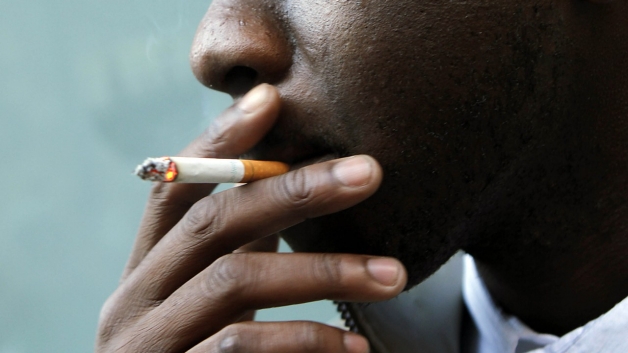Action to stamp out tobacco use can help countries prevent millions of people falling ill and dying from tobacco-related disease, combat poverty and, according to a first-ever World Health Organisation (WHO) report, reduce large-scale environmental degradation.

On World No Tobacco Day 2017, WHO is highlighting how tobacco threatens the development of nations worldwide, and is calling on governments to implement strong tobacco control measures. These include banning marketing and advertising of tobacco, promoting plain packaging of tobacco products, raising excise taxes, and making indoor public places and workplaces smoke-free.
Tobacco’s health and economic costs
According to the UN health body, tobacco use kills more than seven million people every year and costs households and governments over $ 1.4 trillion through healthcare expenditure and lost productivity.
“Tobacco threatens us all,” says WHO Director-General, Dr Margaret Chan. “Tobacco exacerbates poverty, reduces economic productivity, contributes to poor household food choices, and pollutes indoor air.”
Dr Chan adds: “But by taking robust tobacco control measures, governments can safeguard their countries’ futures by protecting tobacco users and non-users from these deadly products, generating revenues to fund health and other social services, and saving their environments from the ravages tobacco causes.”
All countries have committed to the “2030 Agenda for Sustainable Development”, which aims to strengthen universal peace and eradicate poverty. Key elements of this agenda include implementing the WHO Framework Convention on Tobacco Control and, by 2030, reducing by one-third premature death from noncommunicable diseases (NCDs), including heart and lung diseases, cancer, and diabetes, for which tobacco use is a key risk factor.
Tobacco scars the environment
The first-ever WHO report, Tobacco and its environmental impact: an overview, also shows the impact of this product on nature, including:
- Tobacco waste contains over 7,000 toxic chemicals that poison the environment, including human carcinogens.
- Tobacco smoke emissions contribute thousands of tons of human carcinogens, toxicants, and greenhouse gases to the environment. And tobacco waste is the largest type of litter by count globally.
- Up to 10 billion of the 15 billion cigarettes sold daily are disposed in the environment.
- Cigarette butts account for 30–40% of all items collected in coastal and urban clean-ups.
Tobacco threatens women, children, and livelihoods
Tobacco threatens all people, and national and regional development, in many ways, including:
- Poverty: Around 860 million adult smokers live in low- and middle-income countries. Many studies have shown that in the poorest households, spending on tobacco products often represents more than 10% of total household expenditure – meaning less money for food, education and healthcare.
- Children and education: Tobacco farming stops children attending school. 10%–14% of children from tobacco-growing families miss class because of working in tobacco fields.
- Women: 60%–70% of tobacco farm workers are women, putting them in close contact with often hazardous chemicals.
- Health: Tobacco contributes to 16% of all noncommunicable diseases (NCDs) deaths.
Taxation: a powerful tobacco control tool
“Many governments are taking action against tobacco, from banning advertising and marketing, to introducing plain packaging for tobacco products, and smoke-free work and public places,” says Dr Oleg Chestnov, WHO’s Assistant Director-General for NCDs and Mental Health. “But one of the least used, but most effective, tobacco control measures to help countries address development needs is through increasing tobacco tax and prices.”
Governments collect nearly $270 billion in tobacco excise tax revenues each year, but this could increase by over 50%, generating an additional $141 billion, simply from raising taxes on cigarettes by just $0.80 per pack (equivalent to one international dollar) in all countries. Increased tobacco taxation revenues will strengthen domestic resource mobilisation, creating the fiscal space needed for countries to meet development priorities under the “2030 Agenda”.
“Tobacco is a major barrier to development globally,” says Dr Douglas Bettcher, Director of WHO’s Department for the Prevention on NCDs. “Tobacco-related death and illness are drivers of poverty, leaving households without breadwinners, diverting limited household resources to purchase tobacco products rather than food and school materials, and forcing many people to pay for medical expenses.”
“But action to control it will provide countries with a powerful tool to protect their citizens and futures,” Dr Bettcher adds.
